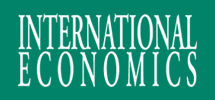
<< N°152
| N°152 | ||
| Issue Q4 2017 | ||
| An empirical model of diversification cones and wage inequality for the states of Brazil | ||
|
Eleydiane Maria Gomes Vale João Mário deSantos De Frnança |
||
| The objective of this article is to join the discussion in the area of international trade, the so-called: diversification cones model, to provide evidence that it is robust in explaining differences in wages also for developing countries. We propose an application of the model created by Kiyota (2012), which separates Brazilian states into two cones. This is accomplished through an ISUR econometric model with eighteen manufacturing industries and two annual samples, 1997 and 2007. Wage differences between cones are measured, and salary equation showed to be crucial for the fit of the model. |
Abstract |
|
| Diversification cones ; Wage inequality ; Development paths ; | Keywords | |
| F14 ; F16 ; C31 ; | JEL classification | |
| Order form |